Types of Horse Races
Horse racing can be confusing for newcomers with specific jargon, bet types, and even race categories. However, once you understand the basics, the world of horse racing opens up. In this article, we will break down the different types of horse races to provide you with a clear understanding of the sport, and how to bet in horse racing. Discover all you need below.
Horse Racing Brief History
Horse racing boasts a rich and storied history that stretches back for centuries. Its origins can be traced to ancient civilisations, including the Greeks, Romans, and Arabians, who all held various forms of competitive horse races. However, the sport as we know it today truly began to take shape in Britain during the 17th and 18th centuries.
The establishment of the Jockey Club in 1750 marked a pivotal moment in the history of horse racing, as it formalised rules and regulations for the sport. The 19th century saw the introduction of the classic horse races that remain famous to this day, such as the Derby, Oaks, and St. Leger.
Horse racing has evolved as a competitive sport and horse racing betting also adds a significant contribution to online gambling. The sport's global reach expanded throughout the 20th century, with renowned events like the Kentucky Derby in the United States and the Melbourne Cup in Australia gaining worldwide recognition.
Today, horse racing continues to be a celebrated and cherished tradition, with a wide array of race types and a passionate following of fans and bettors. Understanding the historical context of horse racing is vital to appreciating the various types of races and their unique significance in this dynamic and timeless sport.
Popular Types of Horse Racing
Horse racing takes many forms, each with its own distinctive characteristics and challenges. From the speed of Flat Racing to the hurdles of Steeplechase, these types of horse racing offer a variety of experiences for both competitors and spectators. Here we examine some of the most well-known forms of horse racing.
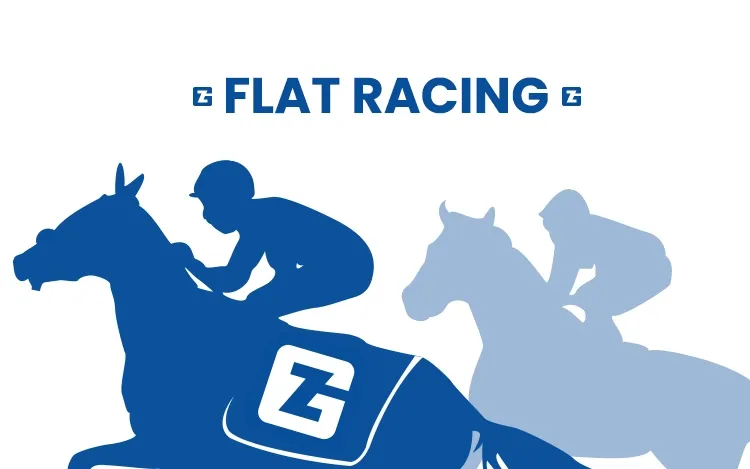
Flat Racing
Flat racing is the epitome of speed and finesse in horse racing. It unfolds on smooth, level tracks, where thoroughbreds thunder down the straightaways. The absence of hurdles or jumps makes it a test of raw speed, agility, and jockey skill, often accompanied by a flurry of excitement in sprints and endurance in longer races. Due to the nature of the races, these normally take place in the sunnier months. Learn more about Flat Racing.
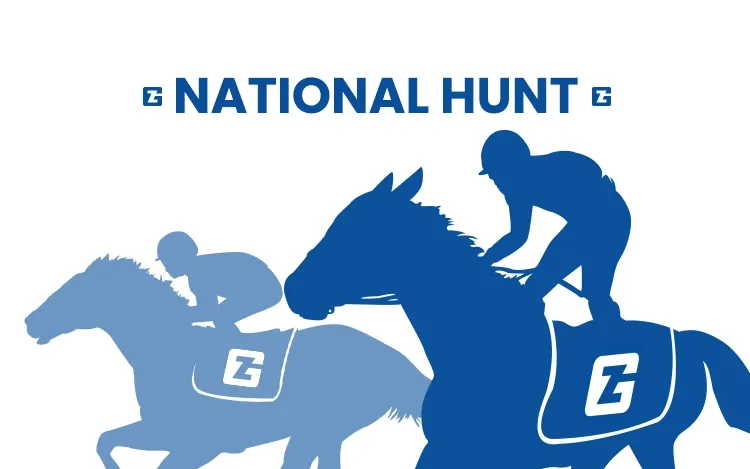
National Hunt
National Hunt racing, in contrast to Flat, introduces hurdles and steeplechases. These jumps present a formidable challenge for horses and jockeys. The sport demands a unique combination of stamina, jumping ability, and tactical racing prowess. It is a thrilling spectacle for those who appreciate strategic, challenging races. Learn more about the National Hunt and why it is one of the most popular horse racing events in the UK.
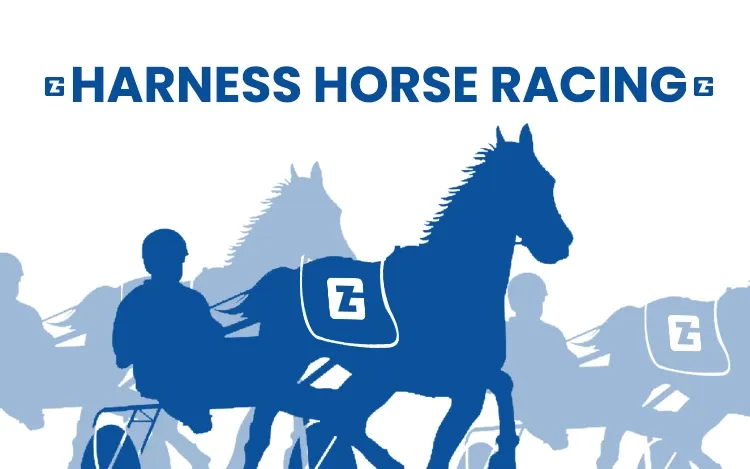
Harness Horse Racing
Harness horse racing is a distinctive form where horses pull drivers in lightweight carts or sulkies. The sport is known for its pacing and trotting races. Although not hugely popular in the UK, this is common across Europe and beyond. Learn more about Harness Horse Racing and how it differentiates itself from other types of horse racing types.
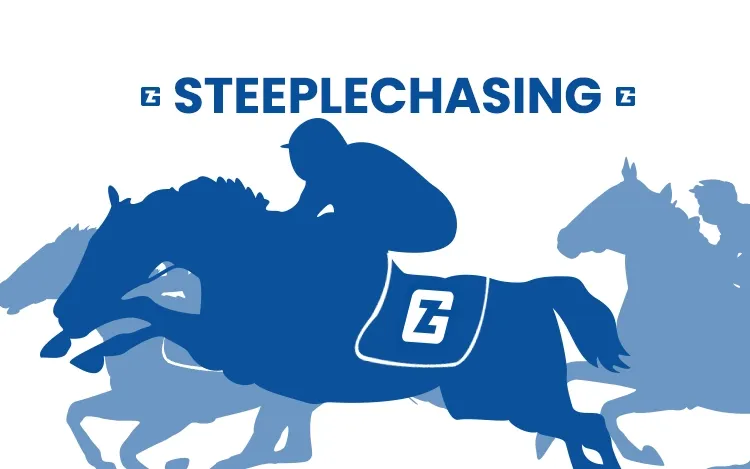
Steeplechasing
Steeplechasing involves rigorous cross-country races, where horses confront challenging obstacles like water jumps and fences. These races are physically demanding and test a horse's bravery, stamina, and jumping skills. Learn more about Steeplechasing and the different kinds of obstacles and challenges that the horses face.
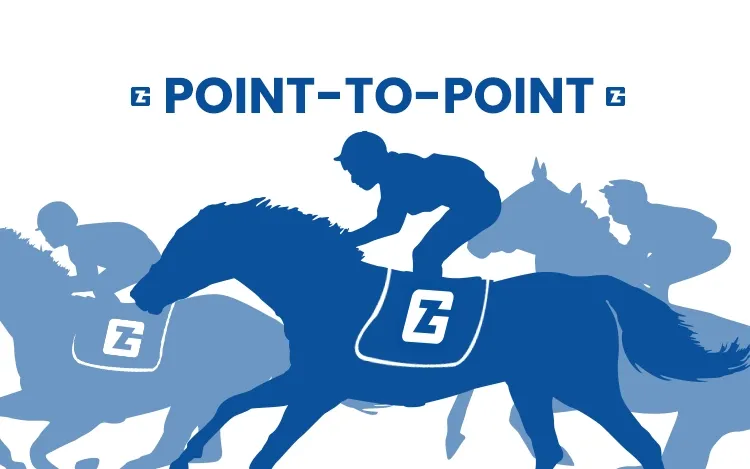
Point-to-Point Racing
Point-to-Point races are grassroots events where amateur jockeys and riders compete over natural, undulating terrains. These races are often a breeding ground for future steeplechasers and are celebrated for their relaxed atmosphere and community spirit. It is a more rustic, down-to-earth facet of horse racing. Learn more about Point-to-Point Racing.
Other Types of Horse Races
In addition to the well-known forms of horse racing, there are other less familiar, yet equally intriguing variations. These other types of horse racing offer unique experiences, from endurance tests to displays of equestrian finesse. It is worth noting that these other types often fit into one of the popular categories, but they still bring their own distinctive challenges and charm.
Endurance
Endurance racing is a true test of a horse's stamina and resilience, often covering distances of 50 miles or more. These races take place on challenging terrains, including deserts and mountains. This type of horse race gained popularity in the US and is gaining more interest every year.
Quarter
Quarter horse racing is renowned for its lightning-fast sprint races, typically covering a quarter-mile or less, hence the name. These intense contests are believed to be some of the shortest horse racing events in the world making them an exciting spectacle, especially for bettors.
Claiming
Claiming races offer a unique twist to horse racing, allowing interested buyers to claim (purchase) a horse participating in the race for a predetermined price. This format adds an element of strategy as owners weigh the risk of losing their horse versus the potential payout. Claiming races create a dynamic and competitive atmosphere for both horses and jockeys.
Stakes
Stakes races are among the most prestigious in horse racing, offering substantial purses and attracting the finest talent. These events require a buy-in fee and give horses the chance to compete at the highest level. A victory in a stakes race not only brings financial reward but also elevates a horse's reputation and standing in the racing world.
Allowance
Allowance races bridge the gap between claiming and stakes races in terms of quality and purse size. Reserved for horses that have shown a certain level of skill and ability, these events provide a competitive platform where talented horses can shine. Unlike claiming races, there is no risk of being claimed, making allowance races an essential stepping stone for horses with potential.
Maiden
Maiden races are a crucial starting point for young or inexperienced horses that have not yet claimed their first victory. These events provide a valuable opportunity for horses to gain racing experience and build confidence. Maiden races serve as a foundation, marking the beginning of a journey towards becoming successful and seasoned racers.
Terms For Age of Racing Horse Types
Understanding the age of a horse provides insights into a horse's potential and also helps in determining the right training. Horses are typically described by specific terms that correspond to their age, and these terms carry significant implications.
In this section, we demystify these age-related terms and their meanings.
- Foal: A horse that is less than one year old.
- Yearling: A horse that is one year old.
- Colt: A male horse aged two years or younger.
- Filly: A female horse aged two years or younger.
- Gelding: A male horse that has been castrated.
- Mare: A mature female horse, typically three years or older.
- Stallion: A mature, uncastrated male horse.
- Mature Horse: A horse that is considered an adult and fully grown, typically around five years or older.
- Sire: A male horse used for breeding.
- Dam: A female horse used for breeding, often referred to as a broodmare.
- Broodmare: A mare specifically used for breeding purposes, often to produce offspring for racing or other equestrian activities.
Final Thoughts
In conclusion, the world of horse racing offers a wide range of race types, and horse racing betting options. Whether you prefer the speed of flat racing or the daring jumps of steeplechasing, there is something for every racing fan to enjoy.
It is als important to remember our commitment to responsible gambling here at Gambling Zone. Set limits, enjoy the thrill, but always bet responsibly. This ensures that horse racing remains an engaging and enjoyable pursuit for everyone.